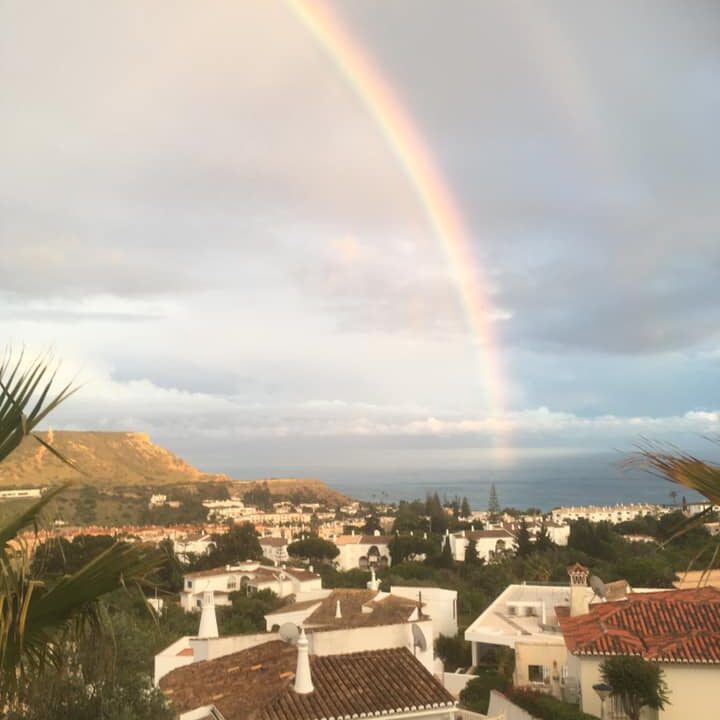A Year in the Algarve

- Roundabouts have Rules — who knew? You have to put a turn signal on when you’re exiting…no one taught me that in driver’s ed. stateside
- Obrigada is not a type of fish. And if you’re a boy, you should say Obrigad-O.
- Double Rainbows DO exist. And for that matter, so do WHITE rainbows.
- Fire can “jump” many kilometers at once — it’s actually called “spotting” and anyone who knows the Algarve understands that summer winds are up to 60km/h so fires travel like rockets. It’s scary.
- Outdoor furniture weighing less than 30 kilos will flip over, blow off your terrace, or end up at the bottom of your garden at some point. It’s just a question of when.
- There are more beaches than people in the Algarve. OK, not really. But it seems like it.
- Stargazing is a lot more fun when the air quality is pure. I’ve never seen brighter stars than in the Algarve.
- Eating food that arrives at your table within 20km of travel is INCREDIBLE. You can taste the difference.
- Spear fishing is a great survival skill.
- Guinea pigs whistle when they like you.
- Bank Mortgages are impossible to get on illegal structures. Don’t even try. Get a good lawyer to check any potential property you want to purchase first — especially if you’re paying cash (think resale).
- Agriculture is an important school subject.
- Wine doesn’t have to be red or white. It can be green too!
- High heels and cobblestones are not a match made in heaven.
- Six year olds cannot actually learn anything on Zoom.
- It may not be the best idea to move countries right before a global pandemic hits.
- There’s nothing online that could even come close to a live in-the-flesh performance. Sorry. It’s reality.
- Learning how to drive a manual car before you move to Portugal is a great idea.
- In a global pandemic, the Algarve might just be the safest place on the planet.
- Positivity can be practiced. Just like yoga or pilates. Seriously. If you tend to see the glass half empty, try a Gratitude Journal. It saved my life in just five minutes/day.
*If you feel like writing your own ’20 things I learned in 2020′ –I’d love to read yours too! Please post in the comments 🙂






